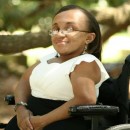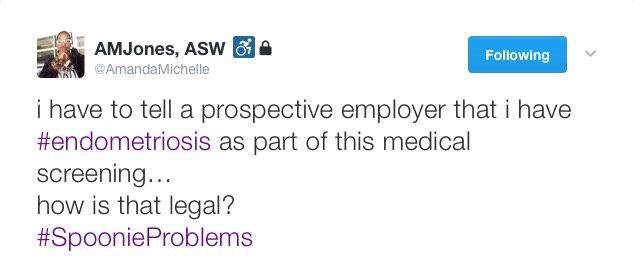- A
- A
- A

March is Social Work Month, and I have used this commemoration to educate my colleagues about the two identities I have – being disabled and a social worker. Both spaces has allowed me to find myself and my voice to speak out on the issues that matters to me and members of the largest minority group nationally and internationally.
What does it mean to be a disabled social worker in this community?
In my unique position, I have an intimate understanding of what it is like to be on both sides of the helping relationship. As a social worker, I see the complicated politics of what resources and supports are prioritized and administered, and the obstacles we must overcome to advocate for our clients when policies and budgets tries to obstruct our efforts. One point many may not realize is that we are just as frustrated by how limiting systems are that impedes the kinds of supports, services, and resources are provided to clients and communities. As a disabled person, I know the effects of how fractured systems can and do impose undue hardships on us, as well as what happens when systems do function appropriately. Fortunately for me, I have more experiences with systems that worked in my favor, but I know that many of us in this community do not have that experience.
It is these reasons I advocate and educate social workers about disability and the issues that matter to us – cultural competence, ableism, sexuality, racism, bias and prejudices, online disability advocacy, and disparities based on intersectional experiences. Those are just a few topics I have conducted presentations and/or dialogues on, that are much needed. The profession is so behind on how it views and understands disability to the point where it will be detrimental to social workers’ desires to advocate and/or align themselves as allies/co-conspirators to the community. Social workers are still being taught person-first language and have a medical-model understanding of disability, both of which are not progressive to the way our community wants society, systems, and helping professionals to see, treat, respond, and interact with us.
In being within both realms, I have befriended social workers who are also disabled advocates. I feel that we are an untapped resource and voice in both communities. We bring perspectives that have been shaped by our placements and are essential to the progression of both groups’ missions. Daria B. and Amanda Michelle J. are advocates whose insight of what it means to be a disabled social worker in our space.
For Daria, she understands how becoming a social worker allows her to increase her advocate’s voice and presence:
Well, being a social worker with a disability is rewarding for me because I get to practice advocating for myself and others. I also get to be a mentor to someone with a disability. I love that I can be the person a teenage girl can relate. However, there are times when I’m noticing the barriers I have to encounter that the rest of my cohort doesn’t have to.
Amanda Michelle decided to share the ableism she has experienced as trying to become employed within the profession. The ableism is something that we do not discuss in the profession, or realize is a barrier in the disabled community. Ableism can look like blatant discrimination, as in Amanda Michelle’s case, but can also be seen with the requirements of many jobs like being able to drive and having personal transportation:
Basically, I’m sad and frustrated and tired and angry. I knew ableism was present in social work, just like anywhere else. I just had no clue how bad things are.
I currently feel like I’m in the midst of a mid-life crisis, including exploring a career change. Even though I just got my MSW a couple years ago. But I had a heart-to-heart with a friend who reminded me:
We also talked about how sometimes the best way to do good is to NOT get into “the business” of doing good but rather contribute in other ways.I’m looking at 40 in a few years but I’ve never made a living wage at any of my jobs (yay, nonprofits). I switched sectors because the government is ALWAYS in need, right? And of all prospective employers, they’re the ones who should be most accommodating, right? I never thought becoming disabled could keep me from being a social worker, of all things. But here I am.
As we have seen, disabled social workers need the community to support us in what we do, whether we are working in agencies, as advocates, or are working on the macro-level in changing the ineffective and oppressive mandates that keeps us from being included in society. As we dive into Social Work Month, I want us to remember Daria’s words as to how we as disabled social workers want to regard us because we exist and matter too:
I wish the disabled community would understand that we are here to help. We want more than anything for you to exercise your right to self-determination, and want to allow you to be a self-advocate.



